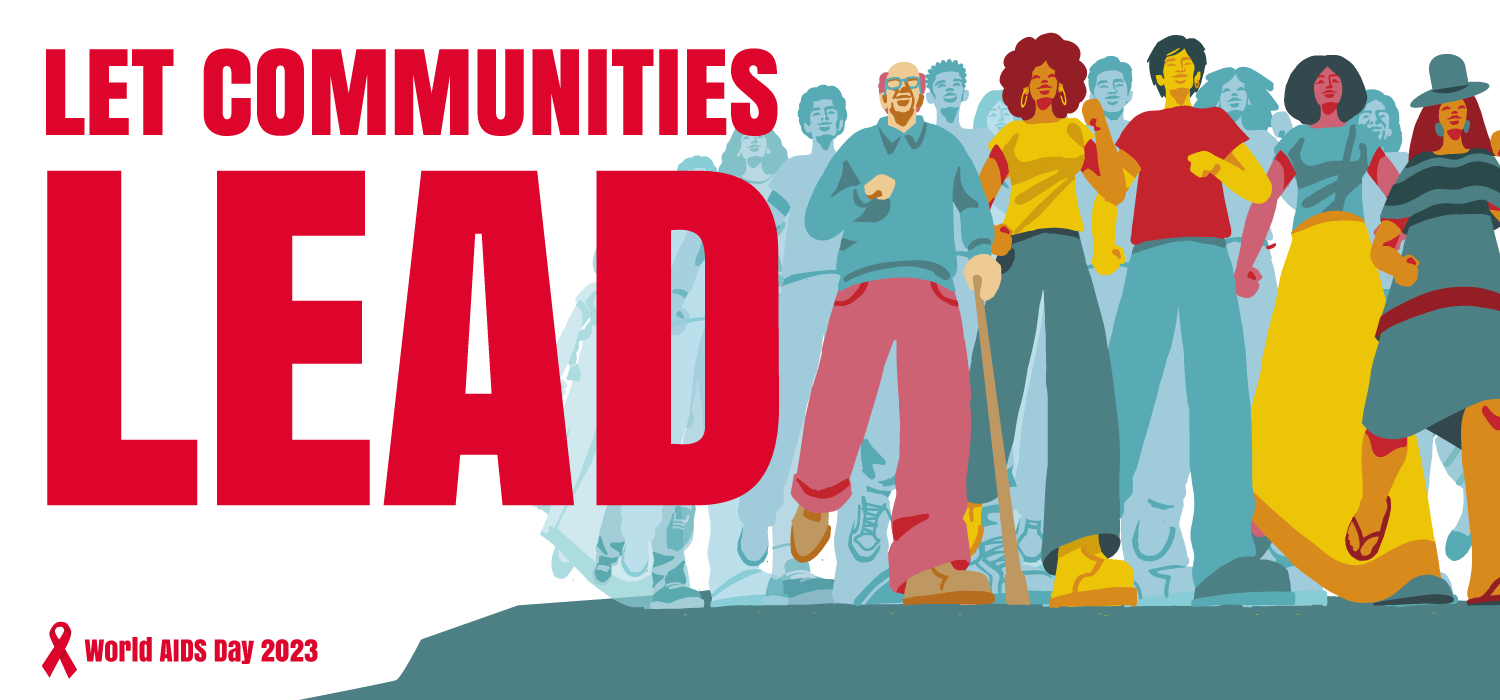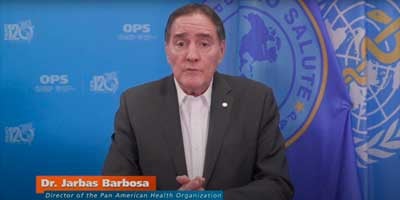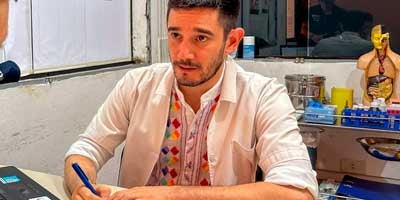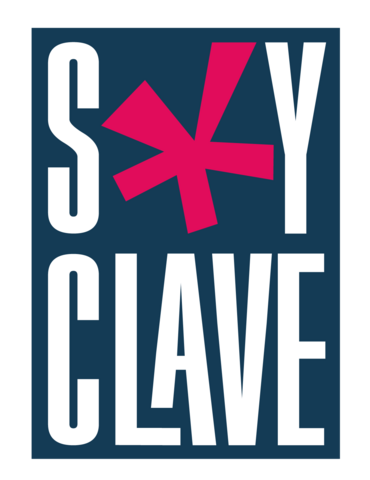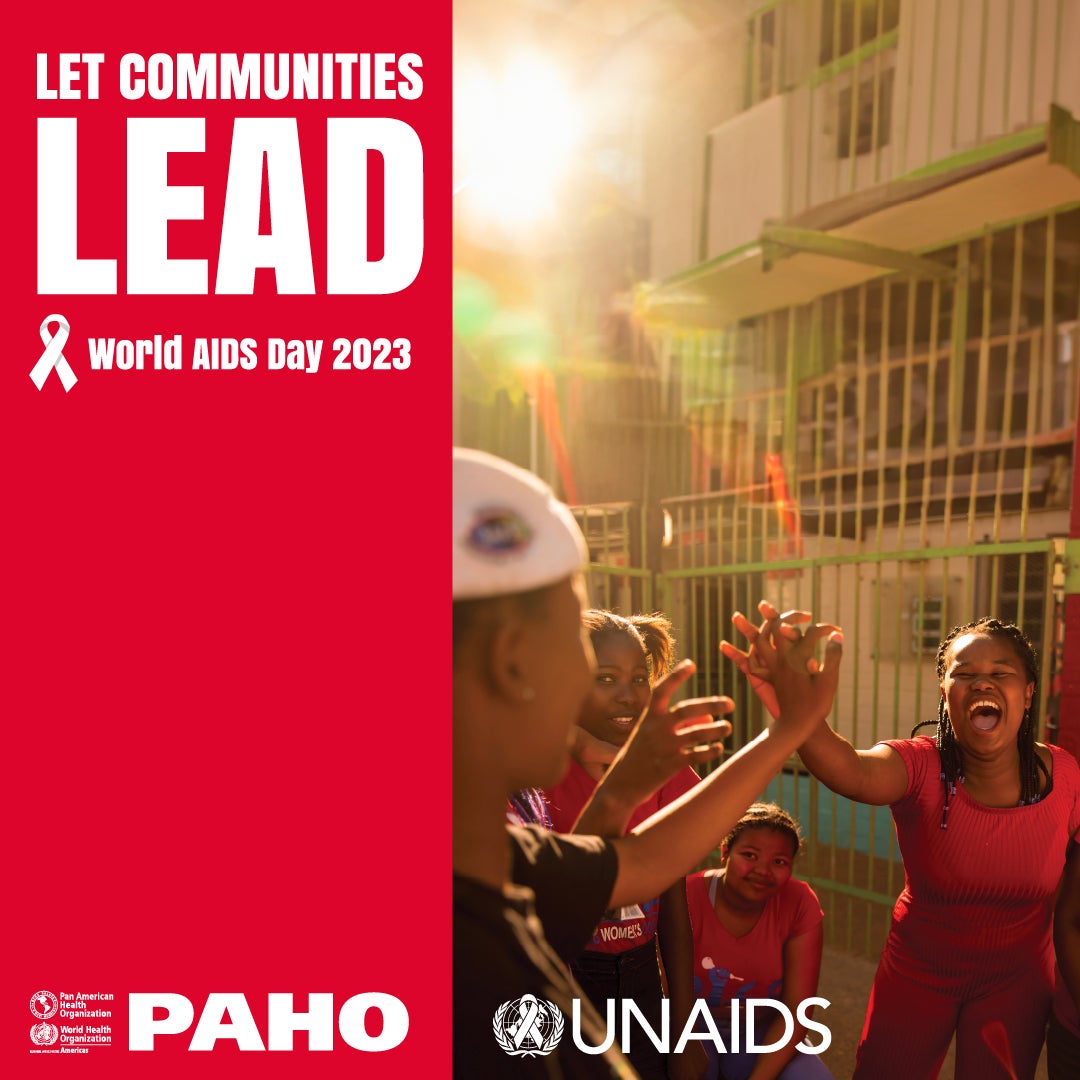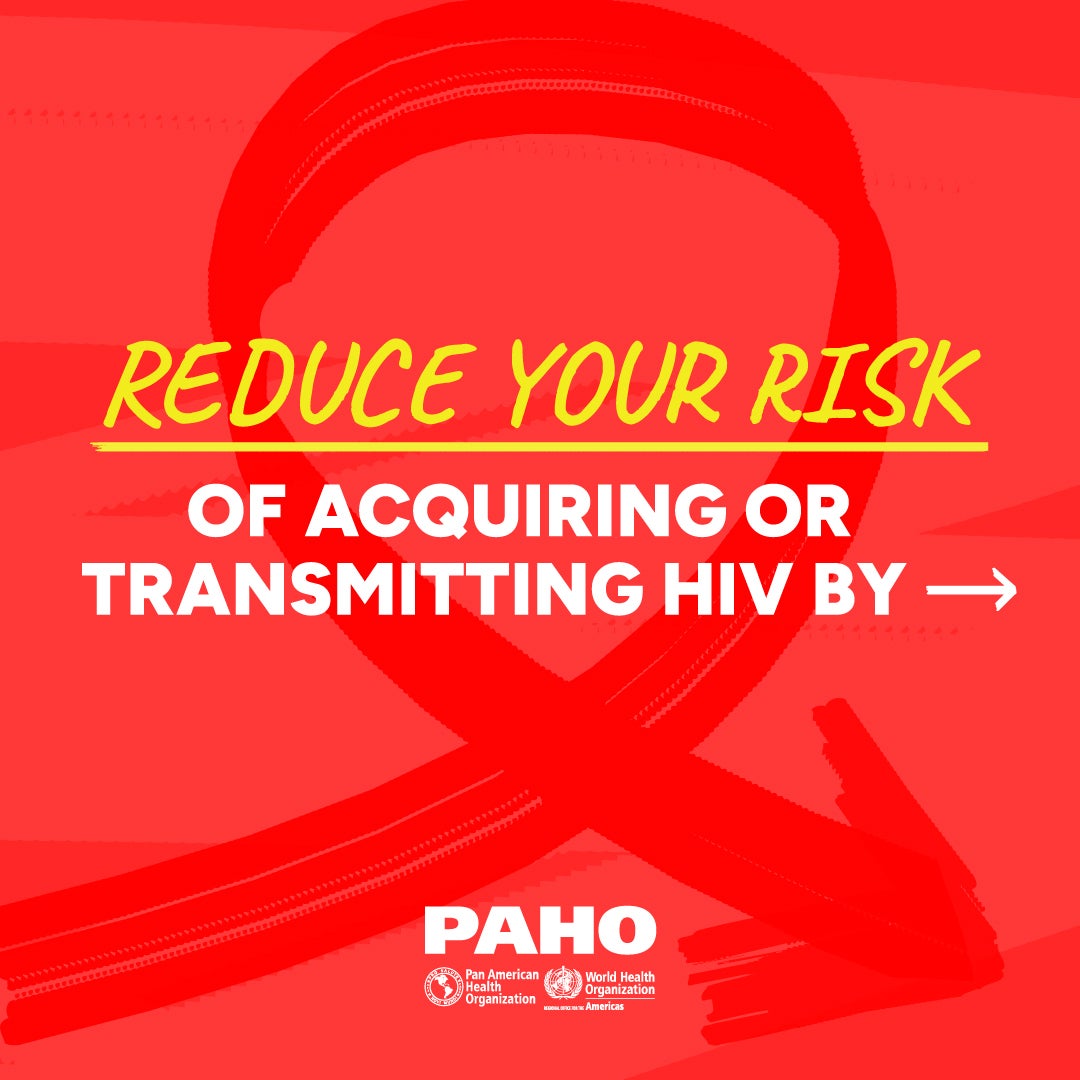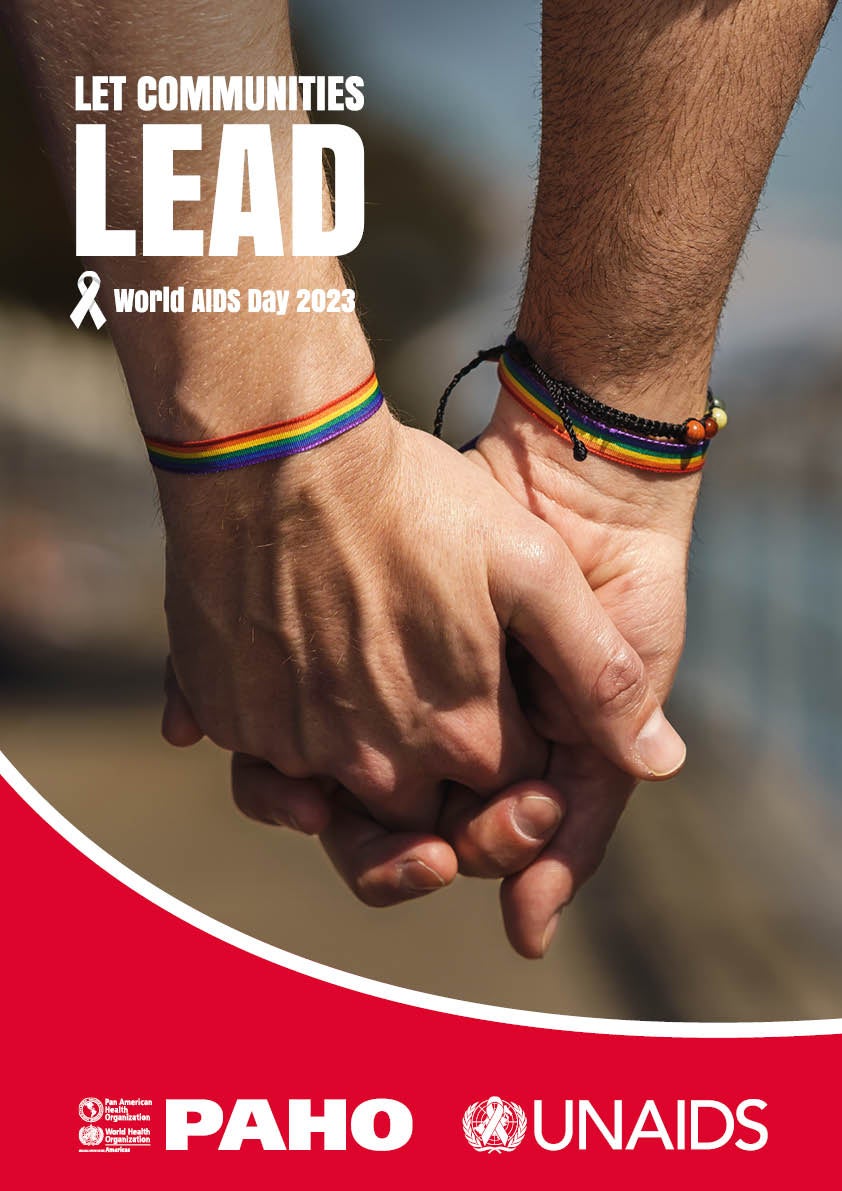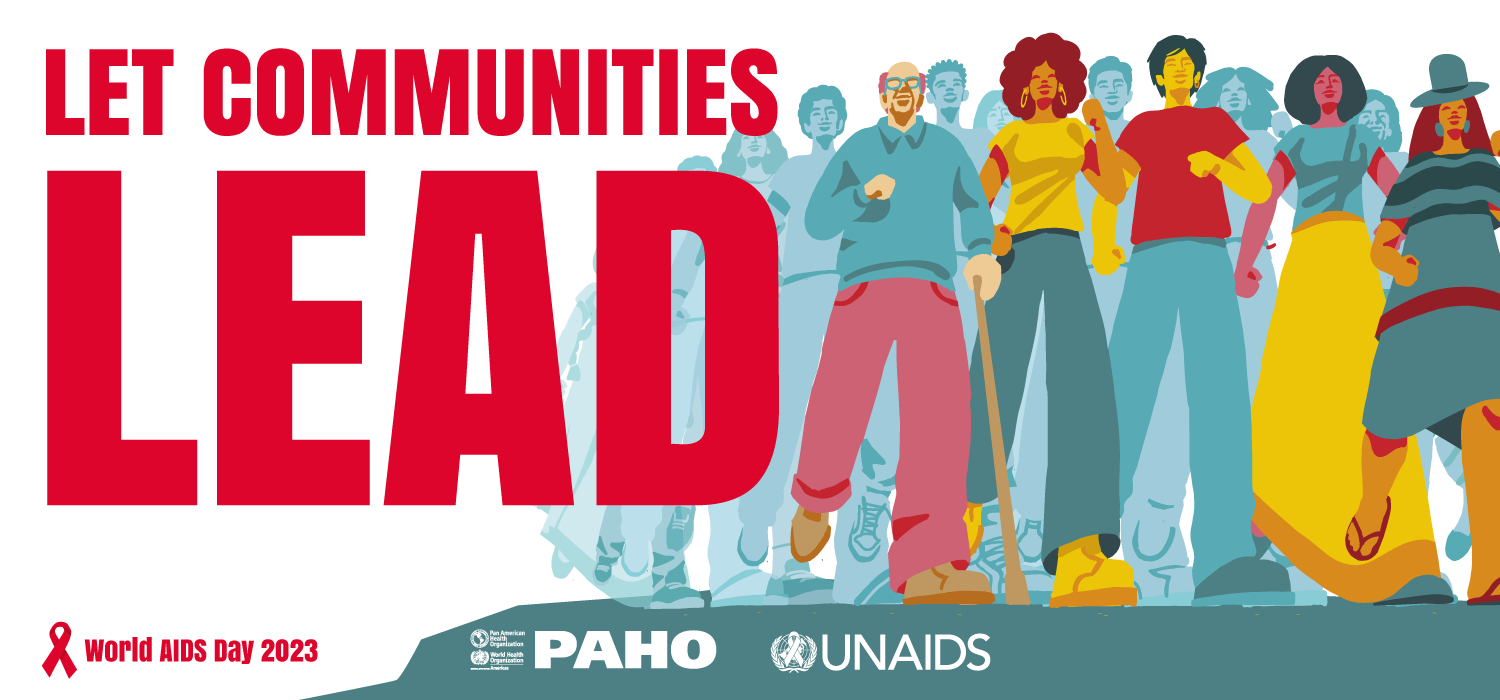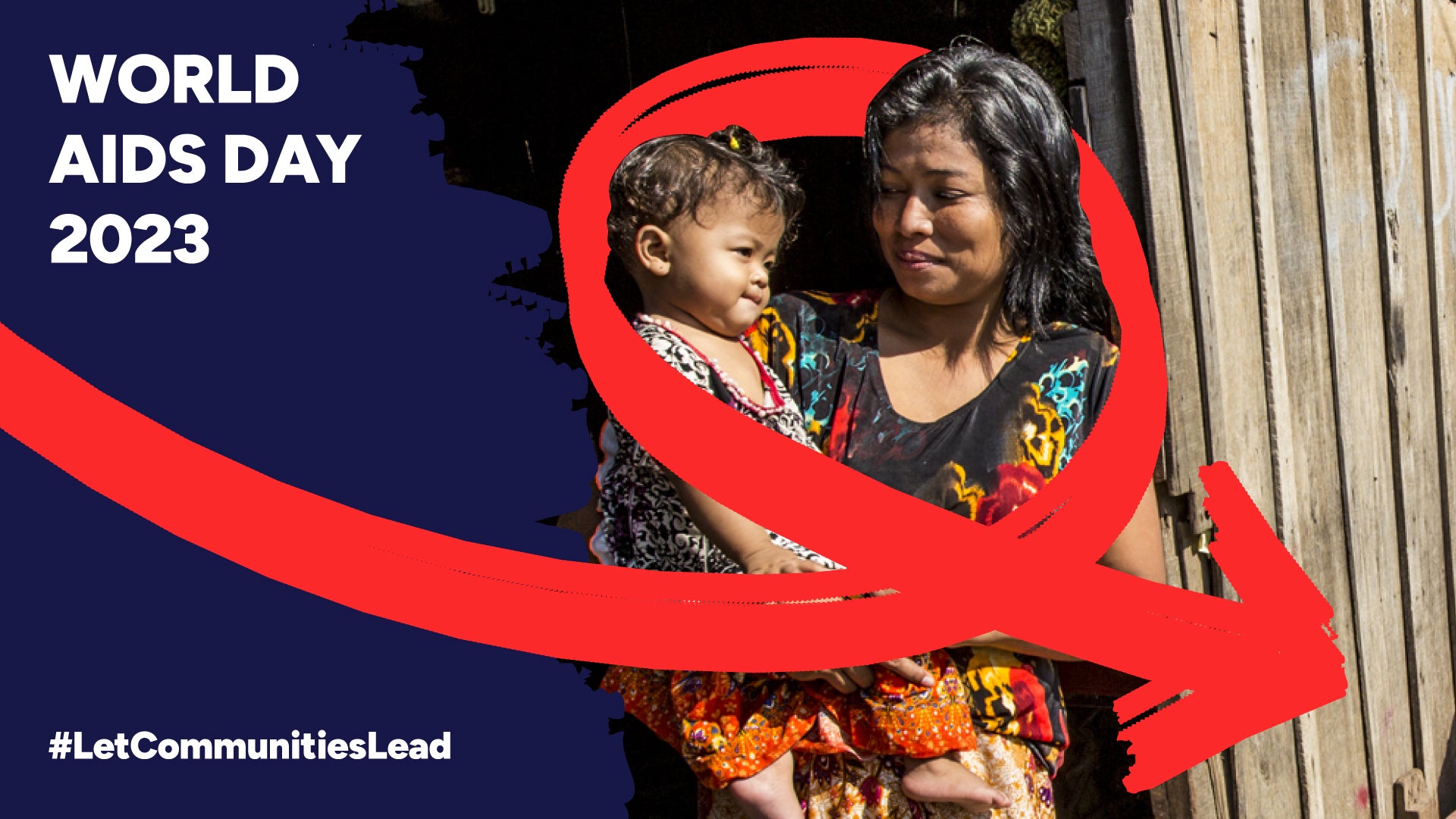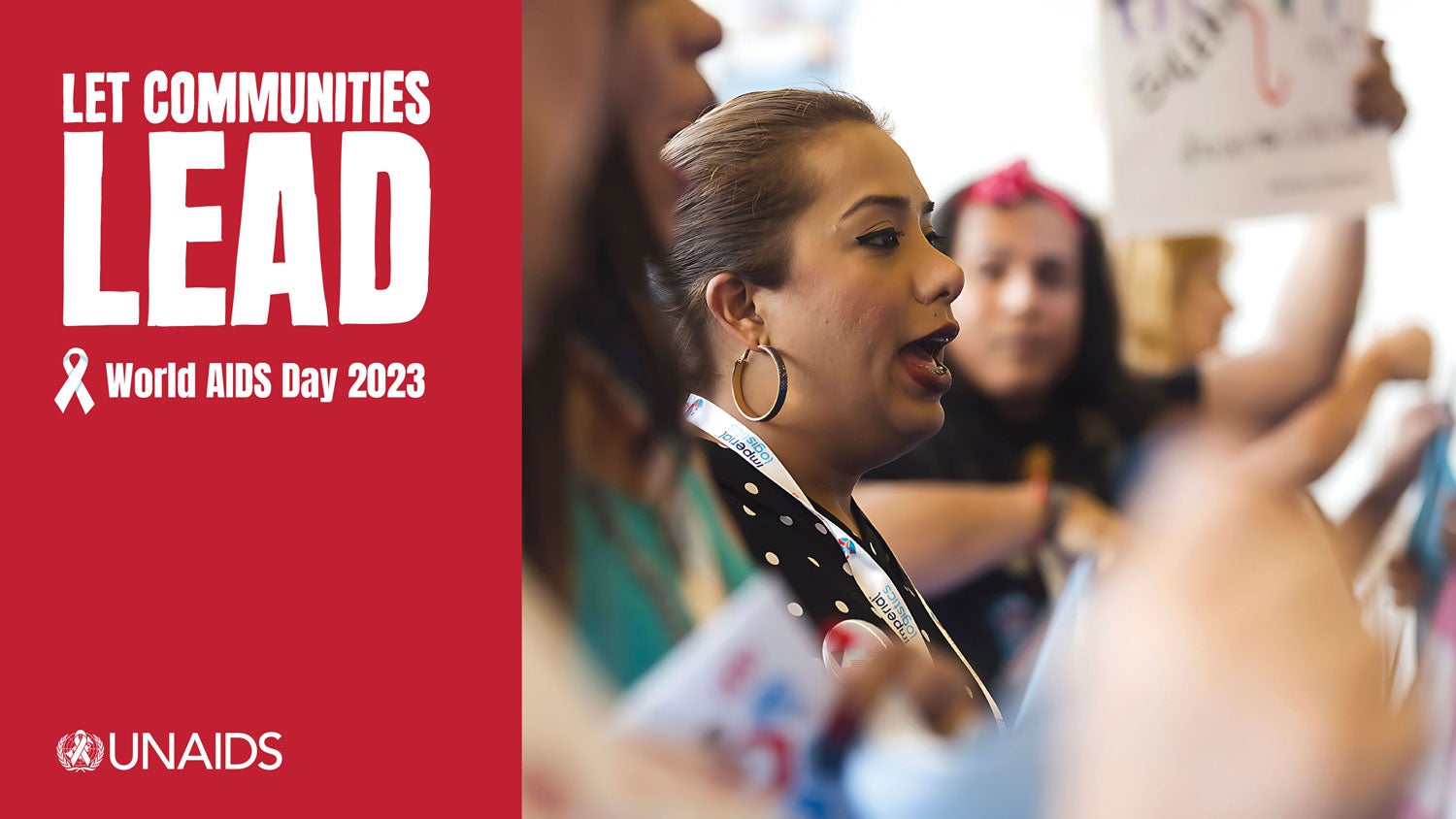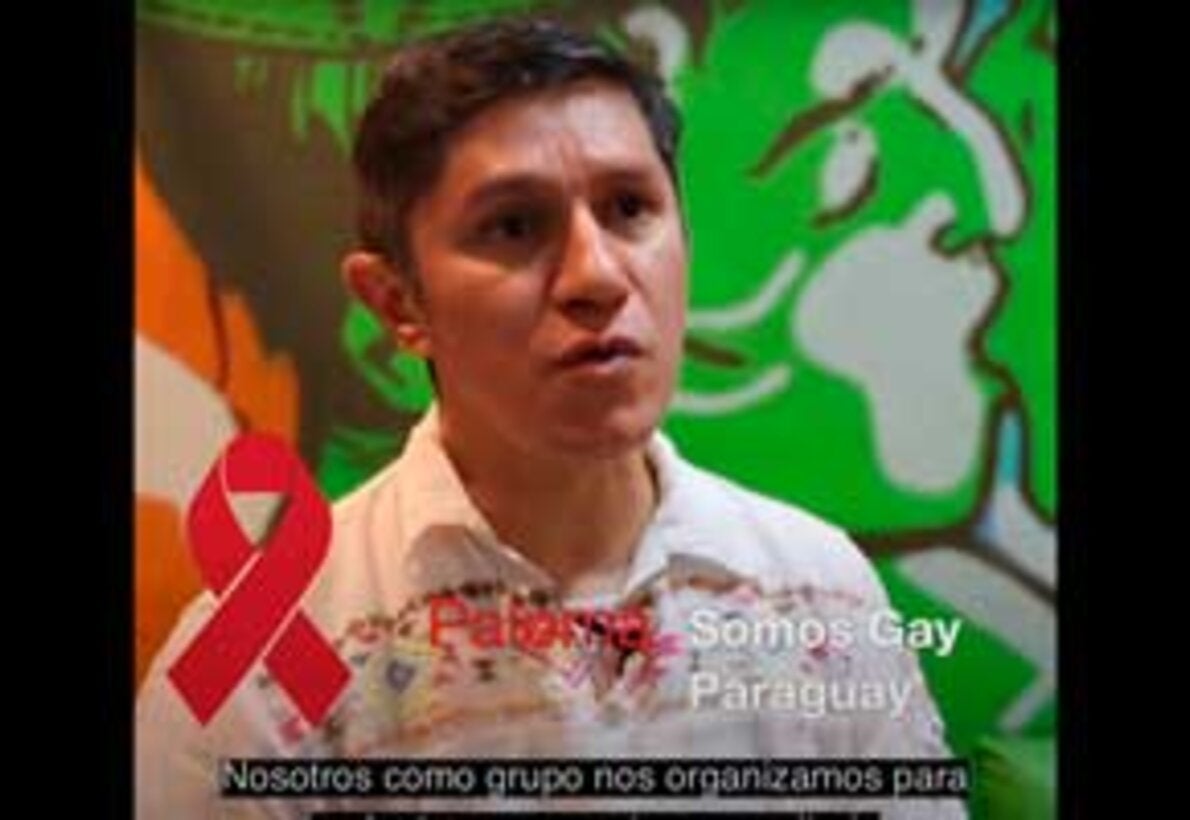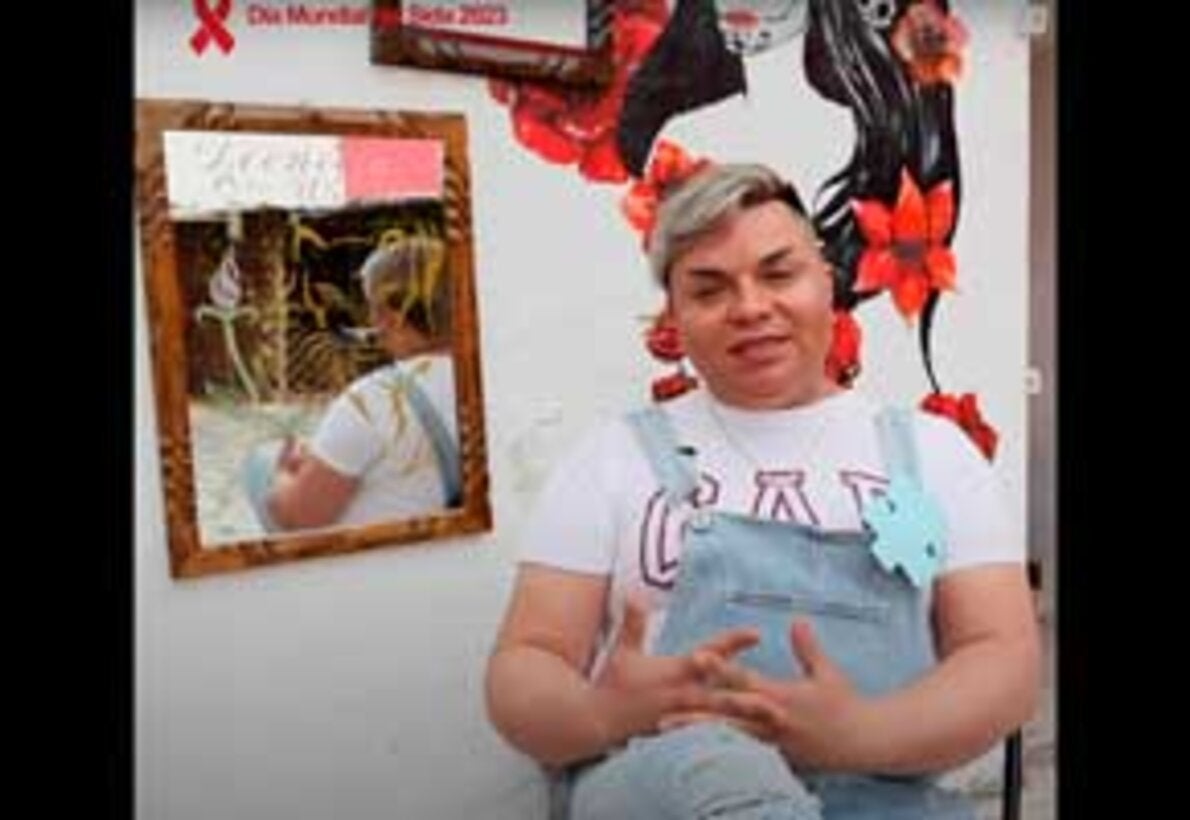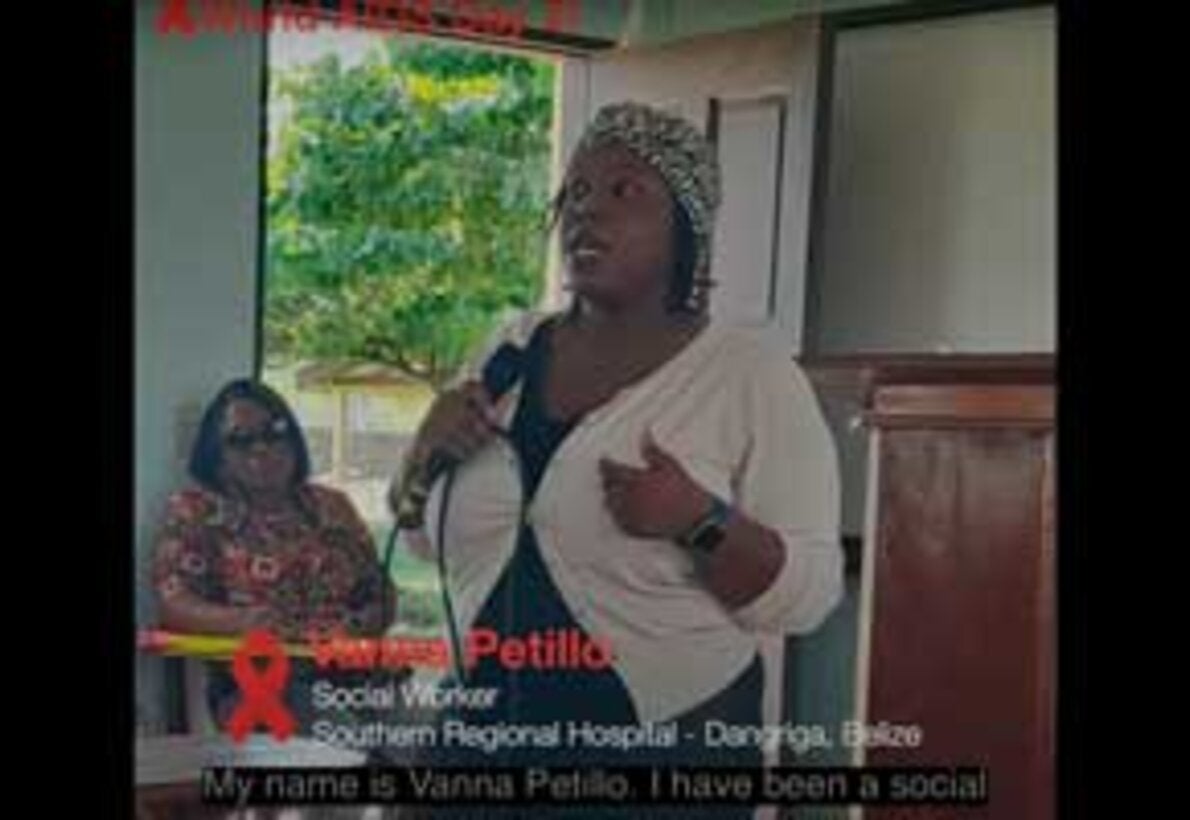SUBMENÚ
On December 1, World AIDS Day is a call to action to enable and support communities in these efforts. A conducive regulatory environment is needed to facilitate the role of communities in delivering HIV services and to ensure an equitable and rights-based health approach.
In the region (LAC), around 2.5 million people are living with HIV. In 2022, approximately 130,000 people acquired the virus, and 33,000 lost their lives due to AIDS-related causes. The number of new infections among key populations (gay and bisexual men, men who have sex with men, sex workers, transgender individuals, drug users, and people in prisons) is significantly higher than among the general population.
To end AIDS, communities play a key role in the response. Community organizations representing populations affected by the virus are on the frontline of the HIV response. Empowering these communities is essential so that they can develop their own strategies and reach those most in need of access to available innovations, such as the distribution of self-tests, the implementation of PrEP at the primary care level and in community centers, and immediate linkage to treatment to achieve an undetectable viral load. A person with an undetectable viral load does not transmit the infection, thus breaking the transmission chain.
With the participation of everyone, we can eliminate AIDS in the Region of the Americas. Let communities lead; let's work together towards the elimination of AIDS.
In order to support the expansion of HIV services to key populations and individuals with HIV, PAHO and UNAIDS are advancing the initiative I Am Key in eleven countries in Latin America. The initiative has strengthened partnerships that support accelerated responses with the involvement of communities and civil society, thereby promoting person-centered service models.
It is essential for communities to be empowered so they can develop their own strategies and reach those who need it most with information, HIV self-tests, antiretrovirals as a prevention method (known as PrEP), and treatment to achieve an undetectable viral load and break the transmission chain.
Furthermore, being spaces free from stigma and discrimination, services led by community groups increase acceptance and retention in care for gay and bisexual men, sex workers, transgender people, and drug users — populations considered key in the HIV response and among those with the highest reported new infections.

